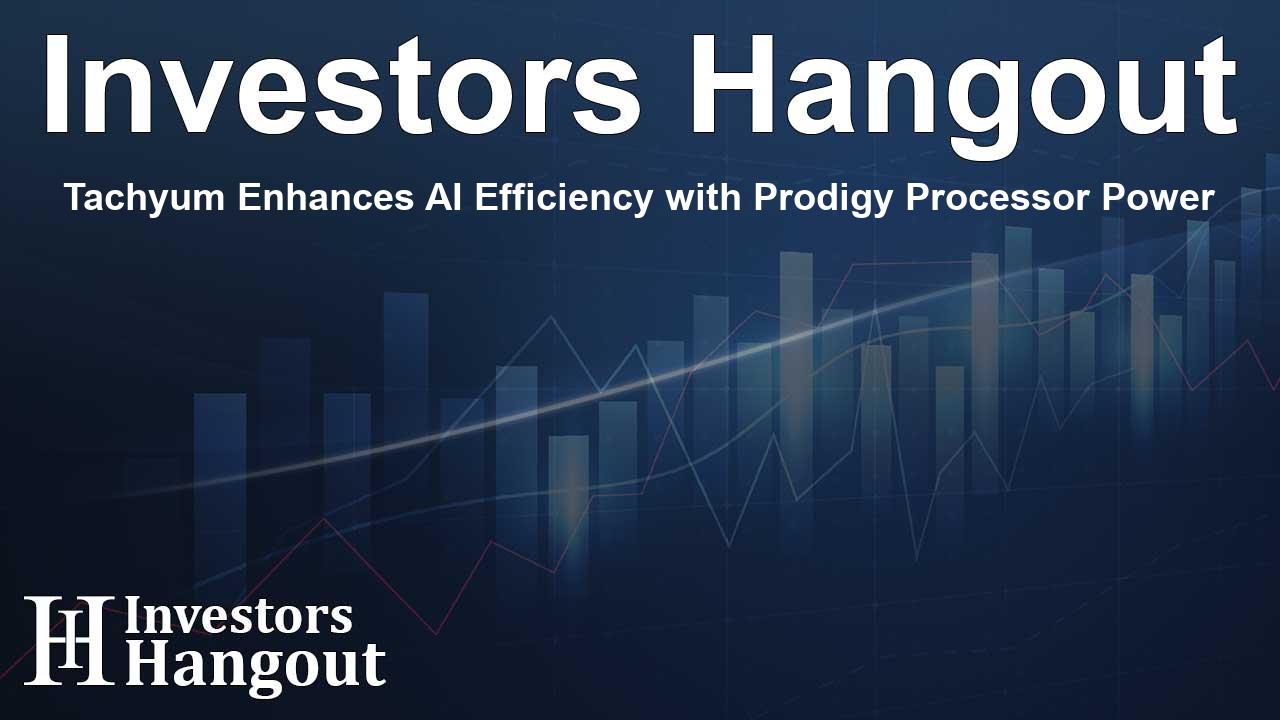Tachyum Enhances AI Efficiency with Prodigy Processor Power

Tachyum's Groundbreaking AI Capabilities with Prodigy FPGA
Tachyum has made significant strides in the realm of artificial intelligence by successfully validating integer matrix operations on its renowned Prodigy Universal Processor FPGA hardware. This innovative advancement promises to enhance various AI applications, showcasing the potential of Tachyum's technology in transforming computational power.
Efficient Operations for Complex Tasks
The recent testing conducted by Tachyum's dedicated team involved 8-bit integer matrix operations that are crucial for image classification tasks using a ResNet model. These operations utilized custom convolution and linear operators specifically designed to be executed on Prodigy's powerful architecture. Such advances enable more efficient processing and better performance in AI-related tasks.
Features That Stand Out
Tachyum's Prodigy is built from the ground up to excel in matrix and vector processing. It provides impressive support for various data types, including FP64, FP32, TF32, BF16, Int8, FP8, FP4, and TAI. Each core of the Prodigy processor is equipped with 2x1024-bit vector units, which are vital for high-performance AI applications. One of Prodigy's most intriguing features is its ability to handle AI sparsity and super-sparsity without penalties, a critical factor for optimizing memory usage and performance.
Comments from Leadership
Dr. Radoslav Danilak, the founder and CEO of Tachyum, emphasized the significance of their innovative software stack, which is designed to meet the demanding requirements of AI applications right out of the box. He pointed out that this feature allows companies to enhance productivity and efficiency in data centers that are often power-hungry. The Prodigy platform stands out as a solution for energy-efficient AI processing, which is essential in light of growing energy demands.
Future Endeavors with Prodigy
Looking ahead, Tachyum has plans to expand its capabilities further by validating matrix operations using the FP8 data type on its Prodigy hardware. This ongoing innovation reflects the company's commitment to advancing AI technology and maintaining its leading position in the market.
Versatile Performance for Data Centers
As a universal processor, Prodigy offers remarkable performance for all workload types. This adaptability means that data centers can effortlessly switch between computational domains, such as AI/ML, HPC, and cloud computing, all maintained on a single, homogeneous architecture. Such versatility eliminates the need for specialized AI hardware, significantly reducing both capital and operational expenditures (CAPEX and OPEX) while enhancing overall data center performance.
Projected Performance Enhancements
Prodigy is engineered with 192 high-performance, custom-designed 64-bit compute cores, allowing it to deliver performance levels that can surpass traditional x86 processors by up to 4.5 times for cloud workloads. In terms of high-performance computing (HPC), Prodigy may outperform the most advanced GPU solutions by a factor of three, and it boasts an astounding 6x performance improvement for AI applications.
Engaging with Tachyum's Innovations
For those interested in visual demonstrations of Prodigy’s capabilities, a video showcasing 8-bit integer matrix operations is available online, providing a clear look at the technology in action. These developments highlight the potential of Tachyum's Prodigy as a transformative force in the world of AI and high-performance computing.
Frequently Asked Questions
What is the Prodigy processor by Tachyum?
The Prodigy processor is Tachyum's innovative Universal Processor designed to enhance AI, heavyweight computational tasks, and offer efficient processing across cloud environments.
How does Prodigy compare to other processors?
Prodigy is engineered to outperform traditional x86 processors and GPUs, providing significantly higher performance for AI and HPC tasks.
What types of data does Prodigy support?
Prodigy supports various data types including FP64, FP32, TF32, BF16, Int8, FP8, FP4, and TAI, making it versatile for different applications.
What future plans does Tachyum have for Prodigy?
Tachyum plans to validate matrix operations for the FP8 data type on the Prodigy FPGA hardware as part of its ongoing development efforts.
Where can I find more information about Tachyum?
To learn more about Tachyum and its products, visiting Tachyum's official website will provide comprehensive information about their offerings.
About The Author
Contact Lucas Young privately here. Or send an email with ATTN: Lucas Young as the subject to contact@investorshangout.com.
About Investors Hangout
Investors Hangout is a leading online stock forum for financial discussion and learning, offering a wide range of free tools and resources. It draws in traders of all levels, who exchange market knowledge, investigate trading tactics, and keep an eye on industry developments in real time. Featuring financial articles, stock message boards, quotes, charts, company profiles, and live news updates. Through cooperative learning and a wealth of informational resources, it helps users from novices creating their first portfolios to experts honing their techniques. Join Investors Hangout today: https://investorshangout.com/
The content of this article is based on factual, publicly available information and does not represent legal, financial, or investment advice. Investors Hangout does not offer financial advice, and the author is not a licensed financial advisor. Consult a qualified advisor before making any financial or investment decisions based on this article. This article should not be considered advice to purchase, sell, or hold any securities or other investments. If any of the material provided here is inaccurate, please contact us for corrections.
